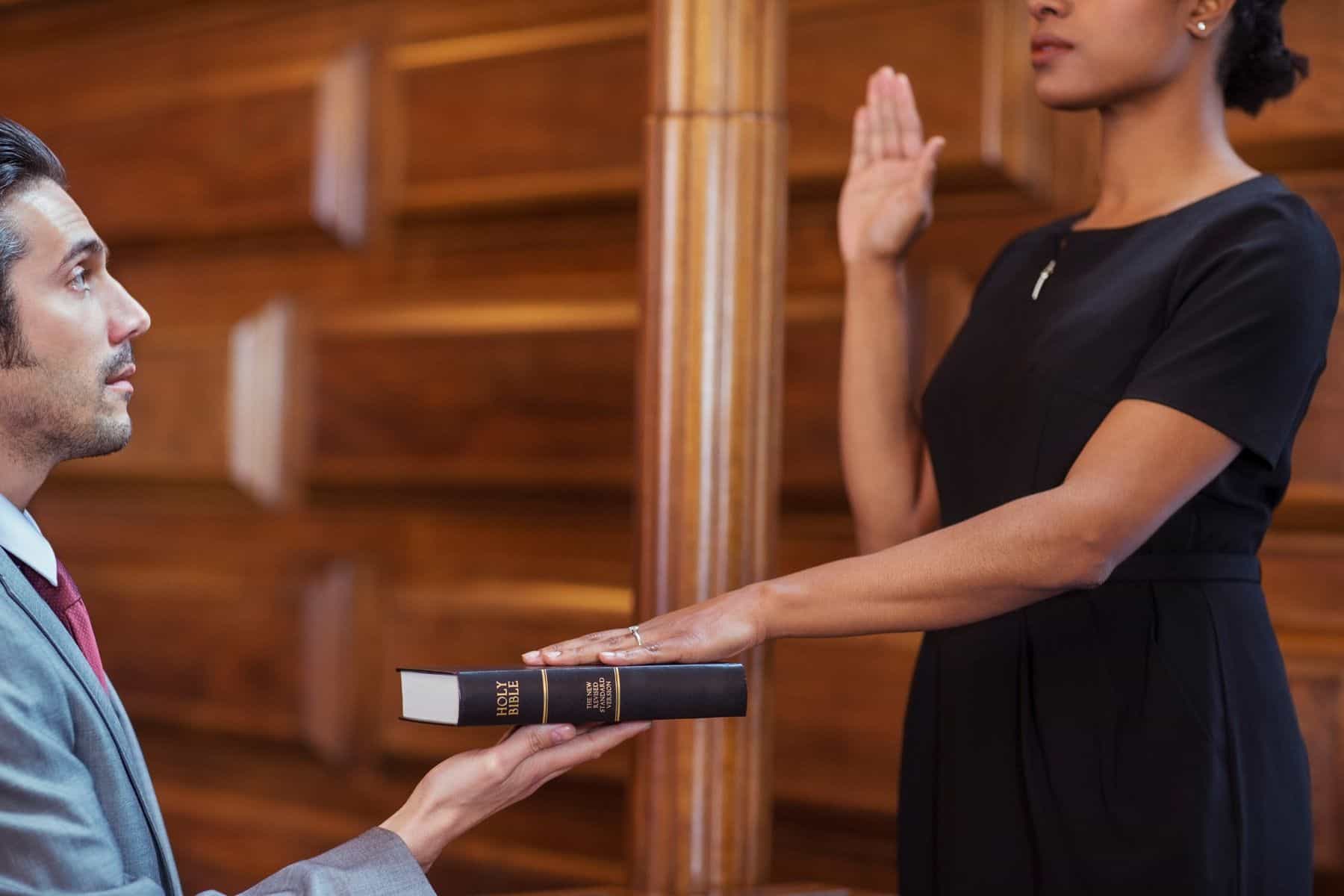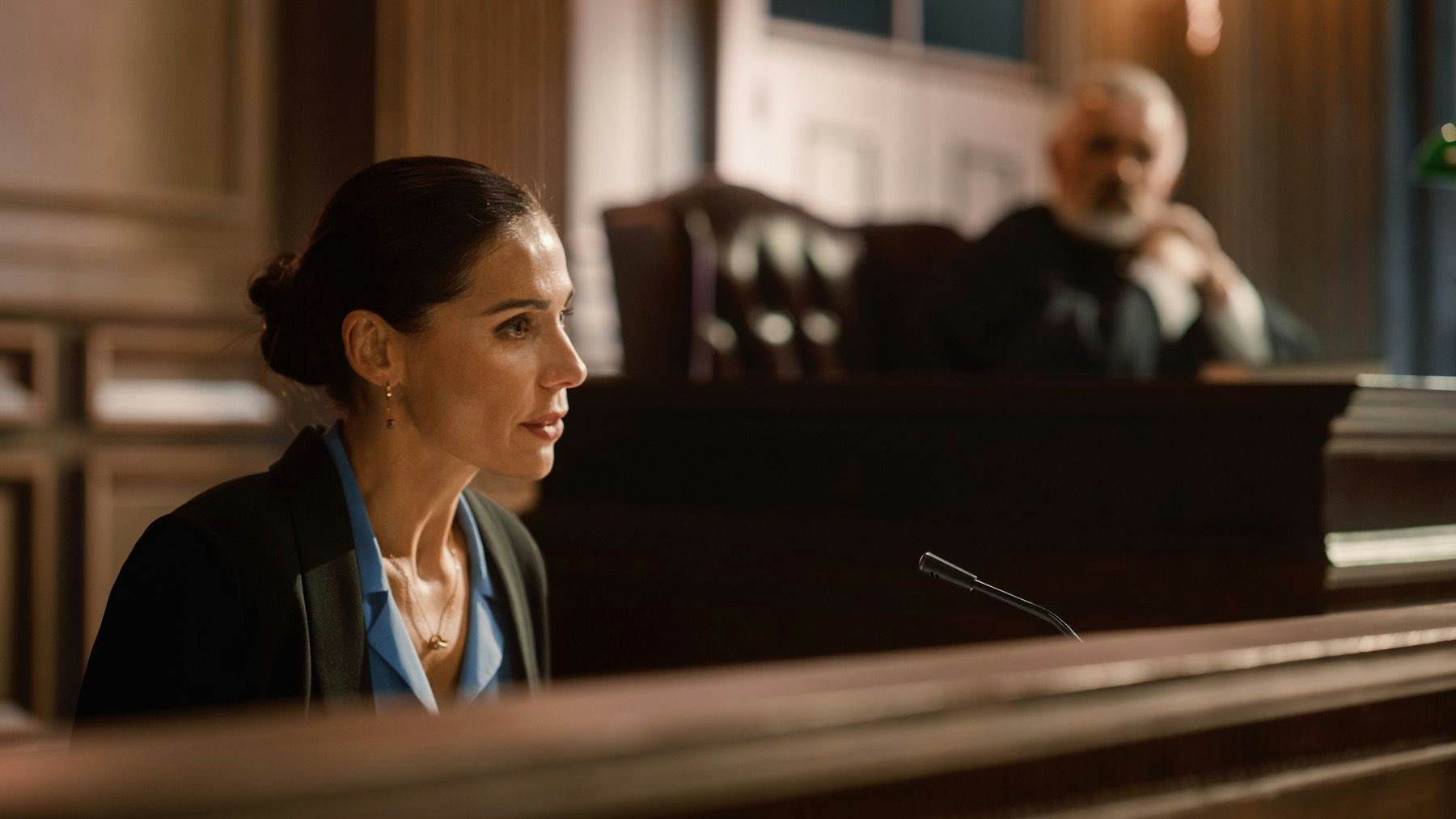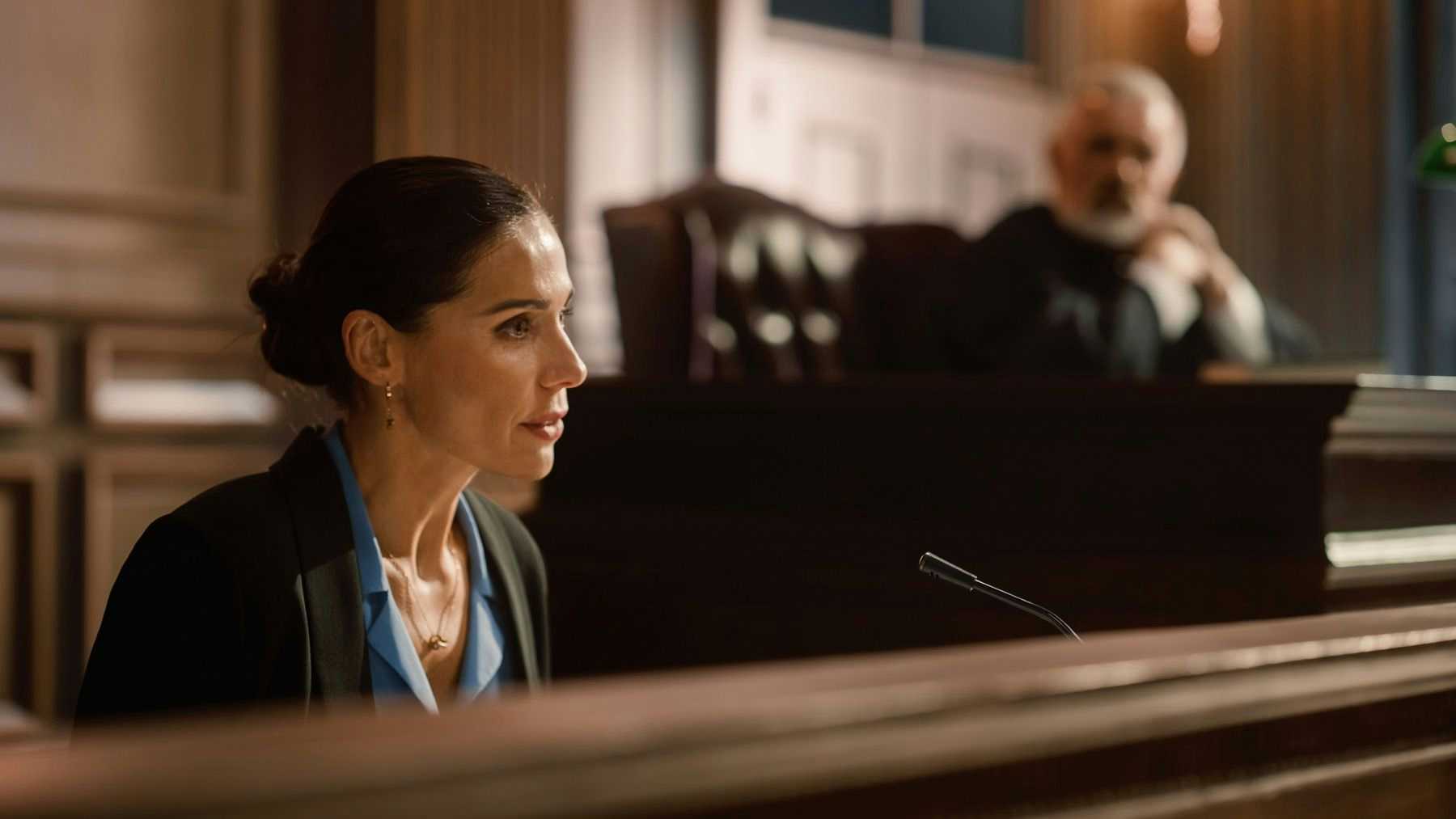What is a Lay Witness?
A lay witness, also referred to as a fact witness, is a witness that can testify about their firsthand knowledge: what they heard, saw, said, or did.
“Personal knowledge” is the key qualifier in the lay witness definition, as these witnesses typically do not offer testimony or opinions that are based on anything beyond firsthand knowledge. Overall, lay witness testimony can be defined by what it is not – expert testimony.
Per Rule 701 of the Federal Rules of Evidence (and the state jurisdictions that follow similar rules of civil procedure and criminal procedure), if a witness is not testifying as an expert, testimony in the form of an opinion is limited to one that is:
- Rationally based on the witness’s perception;
- Helpful to clearly understanding the witness’s testimony or to determining a fact in issue; and
- Not based on scientific, technical, or other specialized knowledge within the scope of Rule 702.
Further, Rule 602 of the Federal Rules of Evidence requires witnesses to only testify about a matter if evidence is sufficient to support a finding that the witness has personal knowledge about the matter. The rule specifically exempts expert testimony from this requirement.
Therefore, lay witnesses are typically limited to offering testimony regarding facts or events that they personally perceived and any opinions on which those facts are derived or are rationally based.
Generally, courts have held that observation of an event or situation clearly falls within the definition of personal knowledge, i.e., when a witness observes a crime being committed or can provide a physical description of a person or event.
Witnesses may offer opinions on personal observations, such as the speed a car was traveling, the height or weight of a person, or the distance of an event. Lay opinion testimony can be given when the witness is in a better position than the fact-finder to form an opinion about the facts at hand.
What is an Expert Witness?
In contrast, an expert witness is meant to assist the jury with complex issues that may be beyond their purview. Defined by Rule 702 of the Federal Rules of Evidence, an expert’s opinion is only admissible if the witness is “qualified as an expert by knowledge, skill, experience, training or education.”
Rule 702 states that an expert’s opinion is admissible if:
- The expert’s scientific, technical, or other specialized knowledge will help the trier of fact to understand the evidence or to determine a fact in issue;
- The testimony is based on sufficient facts or data;
- The testimony is the product of reliable principles and methods; and
- The expert has reliably applied the principles and methods to the facts of the case.
The purpose of Rule 702 is to establish the relevance and reliability of the expert’s opinion, which was amended in response to Daubert v. Merrell Dow Pharmaceuticals, Inc., 509 U.S. 579 (1993), a United States Supreme Court case that developed a non-exhaustive list of factors to consider when determining the expert testimony admissibility.
Rule 703 allows experts to rely upon facts and data beyond what they have personally observed. Rather, experts can consider facts that would otherwise be inadmissible, so long as experts in their particular field would reasonably rely on such information.
Lay Witness vs. Expert: The Differences

The major difference between lay witnesses and expert witnesses is personal knowledge. While expert witnesses may use their scientific, technical, or other specialized knowledge or skill to draw conclusions, lay witnesses can only base their opinions on information they personally observed.
Because an expert’s opinion often extends beyond personal observation, an expert’s testimony is subjected to different rules and requirements than fact witnesses.
Disclosures
There are particular pre-trial disclosure requirements that apply only to expert witnesses. Under Rule 26 of the Federal Rules of Civil Procedure, expert witnesses must disclose to the opposing party a report previewing their proposed testimony (Rule 16 of the Federal Rules of Criminal Procedure has fashioned a similar requirement for expert witnesses). Rule 26 requires the following:
- A report that must be sufficiently detailed and contain all opinions the witness will express and the basis and reasons for them;
- Disclosure of facts or data considered by the witness;
- Any exhibits the expert intends to use;
- The witness’ qualifications;
- A list of other cases in which the witness testified; and
- A statement regarding the expert’s compensation for testifying.
If the expert fails to timely file the report, the trial judgment can exclude any and all of the expert’s testimony.
Opinion Basis
Expert and lay opinions can differ greatly because of the relative breadth afforded to experts as to the facts they are permitted to rely upon when drawing conclusions. Not only may experts base their opinions on facts beyond personal observation, per Rule 703, they are allowed to rely on facts and data that would otherwise be inadmissible at trial.
However, even if otherwise inadmissible, an expert may disclose such facts and data to the jury if their probative value substantially outweighs their prejudicial effect. As a practical matter, this means that experts may rely on (and potentially disclose to a jury) hearsay evidence that would otherwise be inadmissible if admitted through a lay witness.
Admissibility
Like any witness, testimony from either expert or lay witnesses must be relevant to the facts at issue. However, in light of Rule 702’s requirements, an expert’s testimony tends to be subjected to heightened judicial scrutiny and adversarial challenges.
Prior to trial, opposing counsel may request a Daubert hearing, where the party seeking to admit the expert must establish the reliability of the testimony. If the court concludes that the expert’s testimony is based on questionable methodology, the entire testimony can be excluded. Once trial commences, expert witnesses may also be subjected to voir dire questioning, which is when opposing counsel and/or the trial court questions the expert on their qualifications to determine if they meet the requisite standard of an expert in their field.




